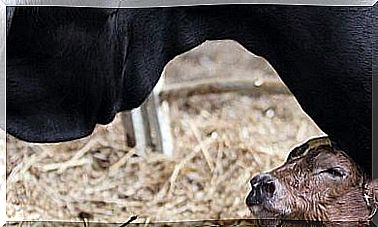10 Reasons Not To Eat Meat
The carnivorous diet, in addition to cruelty to animals, is a waste of natural resources, generates a great environmental impact and more climate change

Avoiding the consumption of food of animal origin is a powerful tool in the fight for a fairer, greener and more sustainable world.
1. Livestock warms the planet
Cows, pigs, sheep … produce more greenhouse gases than all forms of transport combined. The meat business is one of the great culprits of climate change.
2. The carnivorous diet produces more CO2
The consumption of red meat is responsible for 50% of the emissions of this greenhouse effect gas, but it contributes a scant 10% of the nutritional energy. Vegan and vegetarian diets emit almost half as much CO2 as the most carnivorous diet.
3. Proteins that destroy the earth
If compared to legumes, to obtain one kilogram of animal protein you need 18 times more land, 10 times more water, 9 times more fuel, 12 times more fertilizer and 10 times more pesticides.
4. Kill the trees
The livestock industry is responsible for much of the deforestation and the loss of biodiversity, since the land dedicated to the production of fodder represents a third of the world’s agricultural land, according to the report “The Long Shadow of Livestock”, of the Organization of the United Nations for Food and Agriculture (FAO).
5. Wastes drinking water
Each kilo of beef needs 15,400 liters of water, according to the Water Footprint Network. On the other hand, a kilo of legumes needs between 4,000 and 5,000 liters.
6. Dirty aquifers
It is also the largest contributor to water pollution thanks to animal waste, antibiotics, hormones, chemicals used in tanneries …
7. Leave more ecological footprint
With a very carnivorous diet 3.3 tons of CO2 are emitted per person per year. A diet without red meat, but with poultry meat, drops to 1.9 tons. The vegetarian represents 1.7 and the vegan 1.5.
8. Consume more natural resources
We would need a planet and a half to meet current demand, and almost four planets if we all consumed and fed as in the United States. The ecological footprint has multiplied by 2.5 since the 1960s.
9. A rich man’s problem
The more carnivorous industrialized countries have a much higher ecological footprint. The first places are Kuwait, Qatar and the United Arab Emirates, followed by Denmark and Belgium. The United States is placed in eighth place and Spain, in 40. In the queue: Palestine, Haiti, Pakistan or Eritrea.
10. The vegetable alternative
The vegan diet emits almost half as much CO2 as the carnivorous diet. By switching to a vegan diet and replacing meat and dairy products with seeds (cereals, legumes …), CO2 emissions are reduced by 40% compared to an average diet. The official US guidelines advise for the first time to reduce meat consumption for environmental and health reasons.








